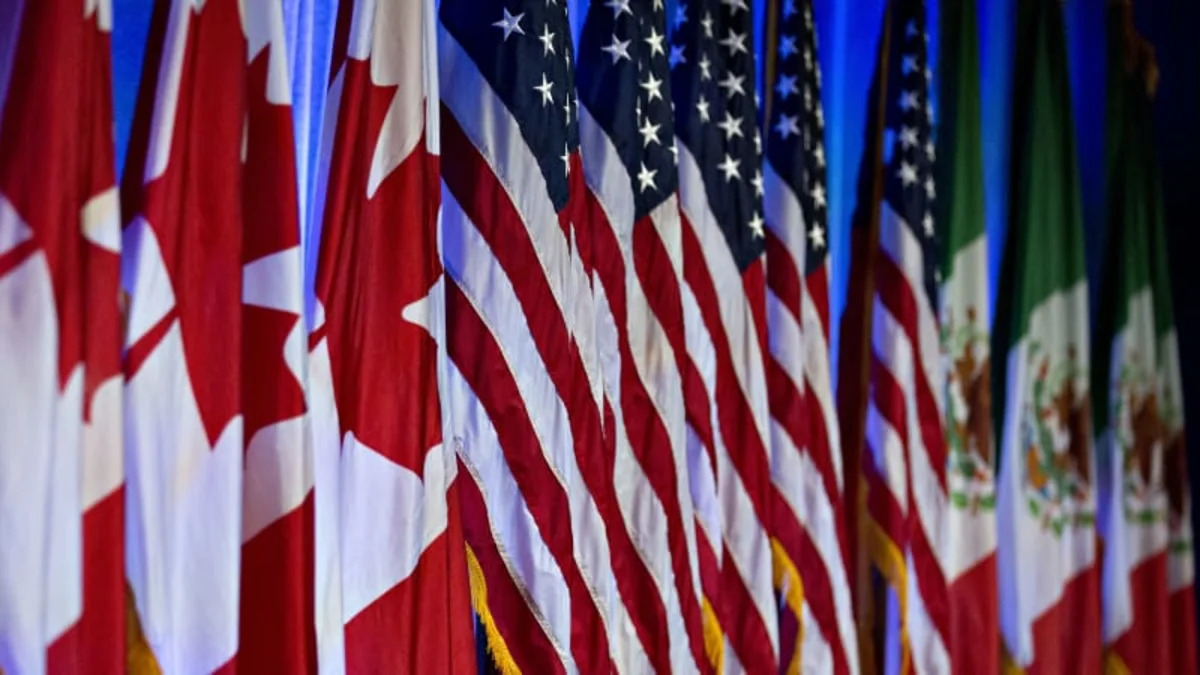The North American Free Trade Agreement will probably be renegotiated successfully with only marginal changes, said a large majority of economists in a Reuters poll, despite the Trump administration's saber-rattling.
Only four of 45 economists polled this week said they thought the deal would be terminated, with the rest expecting an updated trilateral agreement that would not differ radically from the current one.
The remarkably sanguine view from economists in Mexico, Canada and the United States is a sign many experts are taking U.S. President Donald Trump's repeated warnings that he wants his country to withdraw from the pact, which he has repeatedly said is unfair to American businesses, with a grain of salt.
"We expect a modernized agreement after a bumpy and lengthy negotiation and approval process," said Carlos Capistran, head of Canada and Mexico economics at Bank of America Merrill Lynch. "It will be an update ... with marginal changes. The bulk of it will remain the same."
The sixth and penultimate round of talks to revamp the agreement underpinning more than $1 trillion per year in trade among the three countries will begin in Montreal on Tuesday.
The agenda is likely to include a proposal to mandate more auto manufacturing in the United States, a dispute settlement mechanism and a five-year sunset clause.
Canada and Mexico have widely disputed those issues, which U.S. negotiators had raised.
Having blamed NAFTA for U.S. job losses and trade deficits, Trump said on Wednesday that terminating the pact would result in the "best deal" to update the 24-year-old agreement, in effect threatening to scrap it.
Trump has long toyed with the idea of triggering a six-month countdown to U.S. withdrawal as a negotiating tactic. Mexico has warned it would not take part in talks with a clock ticking.
Reuters reported last week that Canada was increasingly convinced that Trump was likely to pull out. He has already imposed punitive duties on Canadian softwood lumber and planemaker Bombardier Inc that prompted a World Trade Organization trial.
WINNERS AND LOSERS
More than two-thirds of the economists consulted said they thought the renegotiation was warranted.
Respondents in the poll cited the energy and technology industries as among potential winners from renegotiation while autos, manufacturing and agricultural companies could suffer.
However, the economic impact of a modernized pact will largely be neutral or positive for each country and their currencies, the economists forecast.
The peso, which has been hammered by Trump's protectionist threats to ditch NAFTA, is likely to appreciate sharply, as much as 8 percent, while the seesawing Canadian dollar could make small gains or remain flat.
However, some respondents said terminating the agreement could send the Canadian dollar and the peso tumbling, hurting those nations' economies. The greenback could also sink as much as 5 percent.
"We are dangerously close to allowing an ill-informed group to lose all that NAFTA has delivered in terms of competitiveness of North American companies," said Diane Swonk, chief economist at Grant Thornton (Reporting by Anu Bararia; Editing by Anthony Esposito and Lisa Von Ahn)
Related Video:


Sign in to post
Please sign in to leave a comment.
Continue